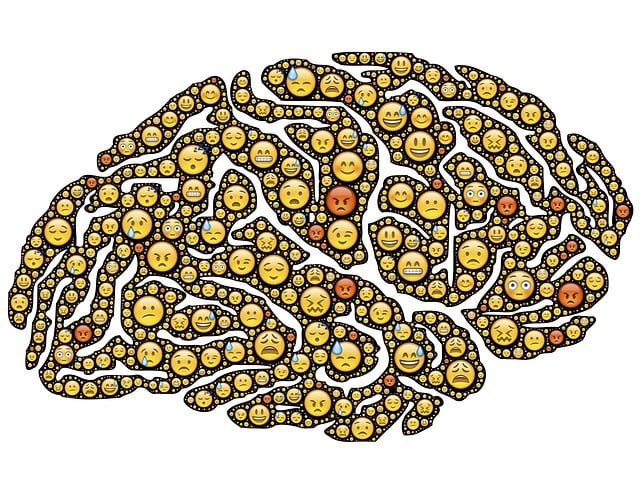Cultural competency in healthcare, essential for equitable care, involves understanding and respecting cultural differences that impact health beliefs, communication, and treatment preferences. Integrating training like Parker Interpersonal Issues Therapy (PIIT) helps providers build trust, improve patient outcomes, and reduce mental illness stigma among vulnerable populations. PIIT offers a structured approach to enhancing emotional intelligence, conflict resolution, and burnout prevention for effective patient care. Effective training includes theoretical frameworks, role-playing, simulations, active listening, tailored communication strategies, self-care practices, crisis intervention guidance, and strategic planning for implementation within healthcare organizations. Evaluation through surveys, focus groups, and case studies is crucial to measure impact and align initiatives with diverse society needs.
In today’s diverse healthcare landscape, cultural competency is no longer an option but a necessity. Understanding and addressing interpersonal issues through evidence-based frameworks like Parker Interpersonal Issues Therapy (PIIT) empowers providers to offer more effective care. This article explores the critical need for cultural competency training in healthcare, delves into PIIT as a powerful tool, outlines key components of successful programs, and provides strategies for implementing and evaluating initiatives within healthcare organizations.
- Understanding Cultural Competency in Healthcare: The Need for Change
- Parker Interpersonal Issues Therapy: A Framework for Training
- Key Components of Effective Cultural Competency Training Programs
- Implementing and Evaluating Cultural Competency Initiatives within Healthcare Organizations
Understanding Cultural Competency in Healthcare: The Need for Change

Cultural competency in healthcare refers to the ability of providers to understand, appreciate, and effectively interact with patients from diverse cultural backgrounds. It’s more than just treating symptoms; it involves recognizing and respecting cultural differences that can impact health beliefs, communication styles, and treatment preferences. This understanding is crucial for building trust, improving patient outcomes, and addressing systemic issues like healthcare disparities and the mental illness stigma.
The need for change in this area stems from the recognition that healthcare systems have historically been dominated by a Western, often monolithic perspective, neglecting the diverse cultural needs of patients. This has led to miscommunication, misunderstandings, and even interpersonal issues, as evidenced by research in Parker Interpersonal Issues Therapy. By integrating cultural competency training, we can facilitate emotional healing processes, foster confidence-boosting environments for vulnerable populations, and advance mental illness stigma reduction efforts.
Parker Interpersonal Issues Therapy: A Framework for Training

The Parker Interpersonal Issues Therapy (PIIT) framework offers a structured approach to training healthcare providers in cultural competency. This evidence-based model emphasizes the importance of understanding and managing interpersonal relationships, which are crucial in delivering effective patient care, especially in diverse healthcare settings. PIIT focuses on developing emotional intelligence, a key component in navigating complex cultural interactions. By learning conflict resolution techniques and burnout prevention strategies, healthcare professionals can enhance their ability to connect with patients from different backgrounds, ensuring better health outcomes.
This therapeutic framework encourages providers to explore their own emotions and biases while cultivating empathy towards patients. Through role-playing and skill-building exercises, healthcare staff can master communication strategies that foster trust and understanding. The integration of PIIT into training programs equips professionals with the tools to address cultural barriers, manage challenging interactions, and provide compassionate care, ultimately improving patient satisfaction and clinical outcomes.
Key Components of Effective Cultural Competency Training Programs

Effective cultural competency training programs for healthcare providers should incorporate several key components to ensure comprehensive and meaningful learning experiences. One such approach is the integration of theoretical frameworks, such as Parker Interpersonal Issues Therapy, which provides a structured understanding of the dynamics between cultural identities and interpersonal relationships. This theoretical lens equips participants with insights into how cultural factors influence patient-provider interactions, enabling them to navigate complex communication scenarios more effectively.
Moreover, successful training programs emphasize practical components like role-playing exercises and simulations that allow trainees to apply their knowledge in realistic settings. Training should cover essential skills such as active listening, clear communication strategies tailored to diverse patient populations, and self-care practices to mitigate the impact of cultural stressors on healthcare providers. Additionally, crisis intervention guidance is crucial for addressing sensitive issues that may arise during care delivery, ensuring that healthcare professionals are equipped with tools to de-escalate tensions and provide culturally responsive support.
Implementing and Evaluating Cultural Competency Initiatives within Healthcare Organizations

Implementing cultural competency training within healthcare organizations is a multifaceted process that requires careful planning and evaluation. It’s not merely about providing workshops or educational sessions; rather, it involves integrating cultural awareness into the fabric of the institution. This includes policy revisions, staff selection processes, and ongoing performance assessments to ensure that all healthcare providers are equipped to address Parker Interpersonal Issues Therapy (PIIT) effectively. By fostering an environment where diverse perspectives are valued, organizations can enhance patient care, improve communication, and build trust among diverse communities.
Evaluation is a critical component of this initiative, allowing healthcare leaders to measure the impact of cultural competency programs. Utilizing tools like surveys, focus groups, and case studies enables them to assess staff understanding of concepts such as confidence boosting, trauma support services, and conflict resolution techniques. This data informs adjustments to training curricula, identifies areas for improvement, and ultimately ensures that initiatives are aligned with the evolving needs of both patients and healthcare providers in a diverse society.
Healthcare provider cultural competency training, driven by frameworks like Parker Interpersonal Issues Therapy, is a vital initiative. By focusing on key components such as empathy, communication, and respect for diverse beliefs, healthcare organizations can implement effective initiatives. This not only improves patient outcomes but also fosters a more inclusive and equitable healthcare environment. Evaluating these programs regularly ensures their ongoing relevance and impact, ultimately enhancing the quality of care provided to a diverse range of patients.














